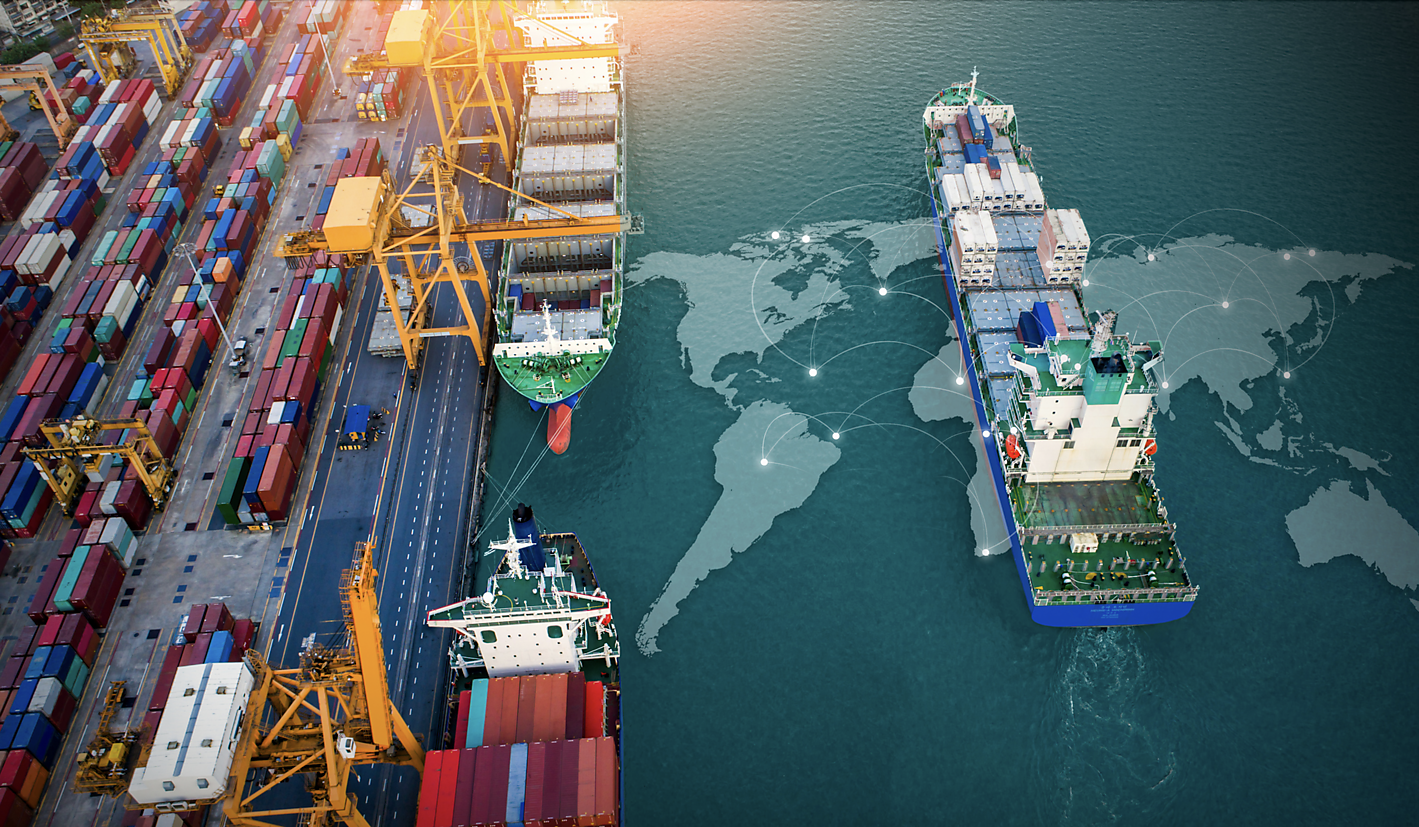-
Superior technical proficiency at producing a particular good is not the same as superior economic efficiency at producing that good.
-
The key to understanding comparative advantage is opportunity costs: Determining whether to produce something yourself or to purchase it from another producer requires comparing the cost of producing that good yourself to the cost that you’d incur to purchase it. Because of comparative advantage, another producer who is less technically proficient at producing the good might nevertheless be able to profitably sell you that good at a price lower than your cost of making the good yourself. That other producer can do so if it has a comparative advantage at producing that good.
-
When one person or productive unit, such as a firm, improves its comparative advantage at some task, it thereby improves its trading partners’ comparative advantages at other tasks.
-
While government export subsidies harm citizens of the countries that use them, they benefit citizens of countries that purchase the subsidized exports. The use by foreign governments of export subsidies does not justify the home government doing the same or otherwise interfering with trade.
Comparative advantage, like language, is ubiquitous. No one who interacts with anyone can escape its operation, which occurs every moment of every day to everyone everywhere. Also like language, comparative advantage was not invented; it arises naturally whenever humans interact with each other. Nor can its array of vast details be reengineered at will to achieve some visionary’s dream. And each of us uses comparative advantage to our benefit without being aware that we’re doing so. Except for a handful of economists, almost no one knows about comparative advantage, and therefore, almost no one can describe it or articulate its logic.
So what exactly is this profound economic force?
This essay answers that question and several related others. In the process, it demonstrates how specialization and trade guided by comparative advantage improve our daily lives—and that despite being a relatively easy or even trivial concept to grasp, comparative advantage is full of surprising implications.
What Is Comparative Advantage?
Most simply, comparative advantage refers to a person’s ability and willingness to supply other people with a good or service that these other people cannot otherwise acquire at a lower cost. Described this way, comparative advantage appears trite: To say that Ann has a comparative advantage at supplying fish to Bob is to say only that, at least for Bob, the lowest-cost supplier of fish is Ann. If, therefore, Bob wants to acquire fish and have as much income remaining as possible to buy other things, he’d best buy fish from Ann. Nothing about such a relationship is remarkable or even interesting.
Yet while the previous paragraph is accurate, it’s the tip of an iceberg. The great bulk of the reality and significance of comparative advantage lies beneath the surface, with unseen surprises.
The chief nontrivial insight gained from understanding comparative advantage is this: An economic entity’s technical ability to produce a product is, by itself, irrelevant for determining if that entity should produce that product itself or acquire that product by first producing something else and then trading that something else for the desired product.
A simple example: You want a new deck and are willing to pay up to $21,000 for it, but you’re also an excellent carpenter. If you work full-time to build the deck yourself, you can build it in one month. Your neighbor Jones, however, offers to build you a deck of identical quality, but because his carpentry skills are not as good as yours, it will take Jones two months to complete the job. Clearly, if technical ability were all that mattered, you should build your own deck.
But an understanding of comparative advantage reveals that this reality is insufficient to economically justify your building the deck. Your building the deck would be worthwhile only if your cost of doing so were less than the cost of having someone else, such as Jones, build it for you.
How can it be that Jones could build the deck for you at a lower cost? According to comparative advantage, your being a better carpenter than Jones tells us nothing about whether you are economically a more efficient deck builder than Jones. What matters economically is the opportunity cost to you to personally build your deck compared to the opportunity cost to you of having Jones build the deck for you. That you possess better skills for building decks than Jones doesn’t guarantee that the cost to you of building the deck is less than the cost to Jones.
If you work as a radiologist and earn an annual salary of $240,000, taking one month off work to build your deck would cost you a month’s worth of income, or $20,000. Because you value the deck at $21,000, if the only way for you to acquire the deck would be for you to build it yourself, you’d find it worthwhile to spend your time building the deck.
Fortunately, you have a better option. Your neighbor Jones works as a bookkeeper. His annual salary is $84,000, or $7,000 per month. If Jones were to take two months off his job to build your deck, he’d forgo an income of $14,000. Clearly Jones can build the deck at a cost $6,000 lower than the cost you’d incur to build it yourself. So you hire Jones for two months at the competitive wage, paying him $14,001 to build your deck.
Had you personally built your deck, you’d have denied yourself $20,000 of income and $20,000 worth of radiology services for others. In contrast, by employing Jones to build your deck, the value of the services denied others is only $14,000.
You’re technically a more proficient deck builder than Jones, but economically this is irrelevant. What’s relevant are opportunity costs. Because Jones’s opportunity cost of building the deck is lower than yours, Jones is economically a better deck builder than you—by $6,000. Jones has a comparative advantage over you at building decks. Table 1 summarizes this example.

The lesson is that if the goal is maximum possible economic gain, the determination of what an economic entity should or shouldn’t produce cannot be made according to that entity’s technical proficiency. What matters economically is the cost to the entity of acquiring the desired output by producing the output itself compared to the cost of producing something else, earning income from the sale of that something else and then using that income to buy the desired output from another producer—that is, compared to the cost of trading for the desired output.
This reality is not affected by the political jurisdiction in which the different parties live. You and Jones might be neighbors in the United States, or Jones might live across the border in Canada. Either way, it’s worthwhile for Jones to build your deck. And it’s better for the economy: If you build the deck, you would deny the economy $20,000 worth of economic output from your regular job; if Jones builds it, the economy loses only $14,000 from his regular job. Nothing—not even government subsidies—alters this conclusion, at least not for citizens of the home country.
What Are Some Comparative Advantage Surprises?
The scholar, financier, and statesman David Ricardo (1772–1823) is credited with first clearly identifying comparative advantage. He did so in Chapter 7 (“On Foreign Trade”) of his 1817 treatise, On the Principles of Political Economy and Taxation. Ricardo used a simple example to show that under reasonable assumptions, even if the Portuguese were technically superior to the English at producing both wine and cloth, if the Portuguese’s superiority over the English at producing wine was greater than their superiority over the English at producing cloth, both the English and the Portuguese would gain if the English specialized at producing cloth, the Portuguese specialized at producing wine, and then each country freely traded with the other.
Ever since Ricardo offered his explanation of what still appears to many people to be a surprising conclusion, the case for free trade has regularly been said to rest on comparative advantage. While correct, the common interpretation of this fact misses an important reality. This common interpretation holds that a pattern of comparative advantage exists and then gives rise to the pattern of specialization and trade that reflects the pre-existing comparative advantages. This sequence often happens in the real world but not always.
Adam Smith (1723–1790), whose 1776 Inquiry into the Nature and Causes of the Wealth of Nations was published 41 years before Ricardo’s treatise, demonstrated that specialization is advantageous even without a pre-existing pattern of comparative advantage. For Smith, specialization improves workers’ or businesses’ technical proficiency at producing the goods and services in which they specialize. By concentrating on doing a particular task, each producer over time becomes better at performing that task. That is, by specializing, each producer creates for itself a comparative advantage. For Smith, specialization is the source of comparative advantage (although Smith was unaware of this principle’s full reality); for Ricardo, specialization is the result of comparative advantage.
Both Smith and Ricardo are correct. Taken together, their analyses identify a virtuous cycle of improvement in economic productivity. Specialization begets greater comparative advantages, while greater comparative advantages increase the benefits of specialization. This is one surprise; combining Smith’s analysis with Ricardo’s reveals others.
By concentrating his or her productive efforts on a particular task, a specialized producer further improves his or her skills at doing the task for which that person has a comparative advantage, thereby becoming an economically worse performer of other tasks.
Consider the deck-building example. Despite your being technically better at carpentry than Jones, it pays to employ Jones to build your deck. Suppose, as Adam Smith predicts, your concentrating your time working as a radiologist improves your radiology skills and causes your annual salary to rise to $252,000. At your higher salary, building the deck yourself would cost you $21,000 rather than $20,000. Your becoming a better radiologist makes you, economically, a worse—that is, a more costly—deck builder even though your proficiency at carpentry hasn’t declined.
More surprisingly, your becoming a better radiologist makes Jones, compared to you, an economically better deck builder—even if Jones’s technical proficiency at carpentry remains unchanged. His cost of building the deck ($14,000) was 70 percent of your cost of doing so ($20,000) at your previous wages. Now that your radiology skills have improved and your wages are higher, however, Jones’s cost of building the deck is only 66.7 percent of your new cost of doing so ($21,000). Your improved radiology skills economically improves Jones’s carpentry skills in comparison to yours. Put differently, the improvement in your comparative advantage at radiology improved Jones’s comparative advantage at building decks.
You’re obviously made better off by becoming a better radiologist. But is Jones made better off by the resulting improvement of his comparative advantage at building decks? Possibly, but not necessarily. If the amount that you pay Jones to build your deck isn’t increased by your improved skills at radiology, Jones reaps no benefit from your improved radiology skills (unless he finds himself in need of the services of a radiologist, but that’s a different story). But two facts here are worth noting. First, Jones isn’t harmed by your becoming a better radiologist. Second, Jones is potentially made better off by your becoming a better radiologist.
Before the improvement in your radiology skills, you would have been willing to pay Jones up to $20,000 to build the deck, but not a cent more. Had Jones earlier demanded to be paid, say, $20,500, you would have refused, and he would have had no hope of changing your mind. The reason, of course, is that earlier you could have built the deck yourself for $20,000. But since your radiology skills have improved, you’re now willing to pay him as much as $21,000 to build the deck.
Obviously, you want to pay Jones as little as possible. Whether or not your improved comparative advantage at radiology—meaning also Jones’s improved comparative advantage at building decks—redounds to Jones’s benefit depends on how many people are competing for Jones’s services as a producer. The more intense this competition, the more likely it is that market forces will drive you to share with Jones some of the benefits you reap from your improved radiology skills.
The question of whether and by how much you would be driven by market forces to share with Jones the benefits of your enhanced comparative advantage at radiology can be answered only by investigating the structure and competitiveness of markets—chiefly, the number of buyers and suppliers of deck-building services. Such an investigation is beyond this essay’s scope. It’s enough here to demonstrate the surprising and important fact that when the comparative advantage of party A improves, the comparative advantage of party A’s trading partner—party B—also improves, thus at least potentially increasing party B’s welfare in addition to the certain improvement of party A’s welfare.
How Does Comparative Advantage Apply to International Trade?
Comparative advantage ultimately exists at the level of individuals and firms: No country as such has comparative advantages or disadvantages. Nevertheless, patterns of international trade reflect the international pattern of comparative advantage. If, for example, producers in the United States have a comparative advantage over producers in Mexico and Sweden at producing pharmaceutical products, the United States would export pharmaceutical products to Mexico and Sweden and import goods from these countries that they produce at a comparative advantage over the United States. If, say, Mexico has a comparative advantage at producing prefabricated buildings while Sweden’s comparative advantage is producing fish, Americans would export pharmaceutical products and import prefabricated buildings from Mexico and fish from Sweden. And Mexico and Sweden would similarly produce and trade based on their comparative advantages.
Talking of countries trading with each other can be a useful shorthand as long as it’s kept in mind that individuals and firms, not countries, trade and that comparative advantages and disadvantages exist only at the level of the specific producer units, meaning individuals and firms. Observed patterns of international trade reflect the patterns of comparative advantages that exist across the different producer units in each country.
Do Subsidies Obviate Comparative Advantage?
What happens if we introduce subsidies? Let’s return to our deck-building example. What would happen if a Canadian producer were to be subsidized by its government to build decks in the United States?
Suppose that you and Jones live in America while Schwartz lives in Canada and is a neurosurgeon whose annual earnings are $360,000. Like Jones, Schwartz is technically a worse carpenter than you are and would require two months to build your deck. Unlike Jones, however, if Schwartz took two months off work, she would sacrifice more income ($60,000) than you’d sacrifice by taking off one month ($21,000). Clearly, among you, Jones, and Schwartz, the comparative advantage at building the deck remains with Jones, so you prepare to hire Jones to do the job.
But before finalizing the contract with Jones, Canada’s government announces that it will pay Schwartz $50,000 if she lets herself be hired to build your deck. In this case, were Schwartz to build your deck, her net loss of income from taking time off from the hospital would be only $10,000. If you then offer to pay Schwartz $10,001 to spend two months to build your deck, she’d happily do it.
Because hiring Jones requires that you pay him at least $14,001, you now find it attractive to employ Schwartz at any price less than $14,001. So you employ Schwartz to build your deck for $10,001. She’ll accept because her total income over the two months she spends building your deck would be slightly more than $60,000—the $50,000 subsidy paid to her by the Canadian government plus the $10,001 paid to her by you.
Schwartz is slightly better off with this arrangement, as she earns for those two months $1 more than she would by working as a neurosurgeon. Jones is slightly worse off, missing out on the opportunity to earn the extra $1 that he’d have made had you hired him. You, however, are made better off by this subsidy by $4,000.
Canada’s subsidy makes the American economy better off by $4,000. With your deck being built by the Canadian Schwartz instead of by the American Jones, the U.S. economy doesn’t lose the $14,000 in Jones’s bookkeeping services. Instead, the cost to the U.S. economy of building your deck under Canada’s subsidy scheme is only the $10,001 that you pay to the Canadian Schwartz, a sum $4,000 less than you’d have paid to employ Jones.
Schwartz doesn’t have a “real” comparative advantage over Jones at building your deck. Schwartz is employed to build the deck in the United States only because her government subsidizes her. For Canadians, the subsidy only makes it appear that Schwartz has the comparative advantage at deck building. Canadians’ taxes are raised by $50,000 to entice Schwartz to work at a job at which she would otherwise not work—a job at which she doesn’t really have a comparative advantage.
Yet for Americans—whose taxes aren’t raised to pay for this subsidy—this appearance of Schwartz’s comparative advantage at deck building is an economic reality. For Americans, her deck-building services are indeed available at a cost lower than what you or Jones would incur. For Americans, Canada’s subsidies are a gift that enriches us no less than we’d be enriched had an unsubsidized Canadian entrepreneur invented a process for lowering the cost of building decks to $10,001, thus enabling you to purchase one of these lower-cost decks at that price.
From Americans’ perspective, the source of lower-cost options abroad is irrelevant. If these lower-cost options arise naturally—say, because there is discovered abroad more deposits of some raw material—we Americans would gain by taking advantage of the foreigners’ improved comparative advantage. If instead these lower-cost options arise artificially—say, because foreign governments subsidize exports—we Americans still would gain, and we would gain no less than when foreigners actually improve their comparative advantage. In both cases we get more exports in exchange for any given amount of our imports.
Any economic downsides, such as some Americans’ losing particular jobs, that arise in America from our purchase of foreign outputs made artificially less pricey by subsidies arise no less from our purchase of foreign outputs made naturally less pricey by foreigners’ improved real comparative advantage. In both cases we should welcome the increased bounty to which we have access through trade. Artificial advantages might raise political concerns (e.g., Jones demanding import protection or his own subsidies), but they do not raise economic ones.
Is Government Intervention Needed to Improve an Economy’s Comparative Advantages?
An understandable objection to this conclusion is that governments don’t dispense subsidies willy-nilly. At least in some cases, governments use subsidies as tools to transform industries in which their countries don’t currently have a comparative advantage into industries that will in the future have a comparative advantage. Subsidies, often combined with protective tariffs, are in these cases designed by each government to ensure that its country hopefully will have a better set of comparative advantages than it would have under a policy of free trade.
This essay’s task isn’t to assess this so-called industrial policy. Excellent assessments are available from many sources, including Charles Schultze, Don Lavoie, Deirdre McCloskey and Alberto Mingardi, Scott Lincicome, Samuel Gregg, and Linda Cohen and Roger Noll. It’s sufficient to note here that industrial policy’s historical record offers no reason for optimism that government attempts to artificially improve a nation’s pattern of comparative advantage will enhance the wealth of the nation.
Fortunately, to ensure vigorous economic growth, we don’t have to rely on the state to engineer improved comparative advantages. Not only does the state have little prospect of succeeding at this task, but individuals have strong incentives and abilities to change their comparative advantages from worse to better.
Indeed, almost no individual goes through life with same comparative advantage that he or she was born with. People get educated. People acquire job skills. Businesses change their product lines, hiring new workers who bring skills that existing employees don’t possess. Entrepreneurs innovate with new outputs and techniques of production and distribution—efforts that, when successful, create new comparative advantages for workers and firms.
These individual- and firm-level efforts to change their comparative advantages are, unlike industrial-policy efforts, guided by market prices. When the wages paid to workers with particulars skills rise, other workers are incited to acquire those skills—that is, to change their comparative advantages. When the prices of some outputs rise relative to the prices of other outputs, entrepreneurs shift their efforts into the production of the now-higher-priced outputs, thus often altering their comparative advantages.
Also, unlike industrial-policy efforts, private efforts to explore and pursue different comparative advantages are disciplined by the prospect of loss. Not spending other people’s money, private workers and firms abandon failed projects as soon as the likelihood of failure appears sufficiently high. Government officials, in contrast, are too likely to throw (other people’s) good money after bad, promising that the vision earlier sold to the public will be realized if only the government shoves yet more resources into the pet projects.
In short, the comparative advantage at pursuing better comparative advantages is had by individuals operating in competitive markets—not by pundits and politicians pursuing their hunches and visions with other people’s money and in contradiction to market prices.
Conclusion
By the nature of comparative advantage, it will exist as long as humanity exists. And as long as comparative advantage exists, there will also exist possibilities for mutually advantageous trade. This reality is unaffected by political borders. Gains from specialization and trade inspired by comparative advantage are not one jot fewer if the trading parties are citizens of different countries than if they’re citizens of the same country. Therefore, obstructing international trade with the goal of improving citizens’ economic welfare in fact worsens that welfare as it prevents citizens from taking full advantage of the opportunities to specialize and trade according to their comparative advantages.
This conclusion holds even if (as is almost always the case) foreign governments interfere with their citizens’ freedom to trade. When a government grants special privileges, such as tariff protection or subsidies, to particular producers within its country’s borders, the bulk of the burden of these privileges falls on that government’s citizens. As a result, that country is made poorer, not richer. And the home country only worsens its own economic performance if it retaliates with tariffs and subsidies of its own. Further, in the case of export subsidies, there is also an unambiguous gain for citizens of the countries that purchase those exports. From the perspective of citizens of the home country, export subsidies paid by foreign governments are sources of benefits identical to those that would be enjoyed if producers in foreign countries had improved their comparative advantages.
Comparative advantage does indeed supply a solid economic justification for a policy of unilateral free trade.

This work is licensed under a Creative Commons Attribution-NonCommercial-ShareAlike 4.0 International License.













